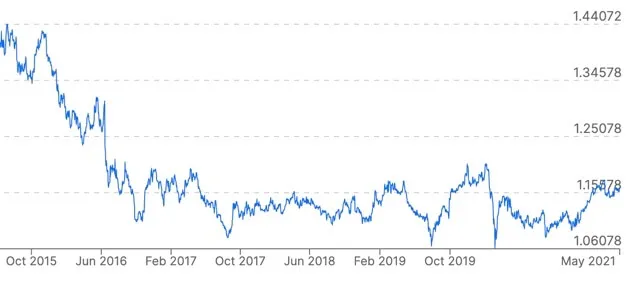
What is an international SIPP?
What we will cover in this post
1 What is a SIPP?
1.1 What is the difference between a regular and international SIPP?
2 Who can have an international SIPP?
3 Making transfers to a SIPP
4 How to withdraw funds from a SIPP
5 A guide to SIPP taxation
5.1 Tax relief on contributions
5.2 Growth
5.3 Tax implications of accessing your SIPP
5.4 SIPP tax implications on death
5.5 SIPPs and the life time allowance
6 Financial advice
7 Should I use an international SIPP or a QROPS
8 Further reading

What is a SIPP?
A Self-Invested Personal Pension (SIPP) can be a low-cost, flexible and straightforward way to save for your retirement.
It allows you to take control of how your pension funds are managed by providing access to a wide range of different investments, including:
- 📈 Shares of individual companies
- 🏦 Unit trusts
- 📊 Open-ended investment companies
- 💰 Investment trusts
- 🔄 Exchange traded funds
- 💵 Bonds
- 🏢 Commercial property
The pension ‘wrapper’ will hold these investments until retirement, at which point they can be turned into income.
A SIPP can be a good option for people who want to gather all of their pensions into one pot before they retire.
What is the difference between a regular and international SIPP?
An International SIPP is a version of the product designed specifically for those of us who are (or will be) non-UK resident.
In many ways, an international SIPP is very similar to a standard SIPP, but with one principal difference: investments can be held in different currencies.
If you intend to spend your retirement outside of the UK, you might be taking a risk by having a pension in sterling.
Exchange rate fluctuations could mean that you are suddenly faced with the prospect of living on a lower real-terms income in the local currency.
This is exactly what happened to those retired in Europe as a result of Brexit uncertainty, with sterling dropping more than 20 percent against the Euro.

Who can have an international SIPP?
An international SIPP might be appropriate for a wide range of individuals, including non-UK residents and foreign nationals residing in the UK.
You can have an international SIPP if you are employed, self-employed or unemployed.
If you have already retired, it may also still be possible to take advantage of this type of pension arrangement.
Making transfers to a SIPP
In most cases, it is possible to transfer funds to a SIPP (regular or international) from another UK pension arrangement.
However, transferring to a SIPP is not always the best course of action, and it is usually best to seek professional financial advice before doing so.
If you have a final salary pension valued at £30,000 or more, then it is a legal requirement to obtain professional advice before transferring.
It is not possible to transfer to an international SIPP from an unfunded UK public sector pension scheme.
How to withdraw funds from a SIPP
As with most pension arrangements, you can withdraw the funds in your SIPP from age 55 (from 2028, this will increase to 57).
You will have full flexibility as to how you access these monies – you can access the fund as lump sums, an income, or a combination of the two.
Under the flexible drawdown option, anything you don’t withdraw remains invested.
There is also the option of using your SIPP to purchase an annuity, which provides a fixed income for life, but there is now no obligation to do this.
A guide to SIPP taxation
Tax relief on contributions
If you aren’t resident in the UK for tax purposes at the time you make a contribution to the SIPP, then you won’t receive tax relief on that particular contribution.
However, if you are still paying UK tax, in spite of being resident overseas, then you can expect to receive tax relief on your contribution in the same way as you would with any UK-registered personal pension plan.
In these circumstances, the contribution is made net of basic rate tax, so the Government adds 20p for every 80p you contribute.
Higher rate taxpayers can then claim additional tax relief via their tax return.
Growth
The funds within your SIPP will grow free from income and capital gains tax.
Tax implications of accessing your SIPP
When you access the funds in your SIPP, you can withdraw 25% of the fund as a pension commencement lump sum (PCLS).
This is free of tax in the UK.
However, if you are resident outside the UK, it may not be tax-free.
Whether it is or not will depend on the tax treaty between the UK and your country of residence. You should always seek professional advice in such cases.
Withdrawals over and above the PCLS will be taxed as income in your country of residence.
If you are resident in the UK, you will be taxed at your highest rate of income tax. For example, if you pay 40% tax on some of your income, all of your pension income will be taxed at 40%.
SIPP tax implications on death
If you die prior to age 75, then your beneficiaries can access the fund as a lump sum or as an income stream free of UK income tax. If you die after age 75, the beneficiaries will pay income tax at their highest income tax rate, but there will usually be no inheritance tax liability in these circumstances.
Financial advice
As mentioned above, if you are considering transferring funds from another pension arrangement into a SIPP, then it could be a good idea to seek professional financial advice.
It can be beneficial in any case to consult a financial adviser before you set up a SIPP.
There is a huge range of investment options, and not everyone will be comfortable choosing exactly where they wish to invest.
A skilled financial adviser can explain the pros and cons of the various options and can identify investment areas that are in line with your risk profile, as some of the available investment options are higher risk.
Regular reviews with your adviser can also be important – at these reviews, the adviser can monitor the performance of your investment and recommend any changes.
Many people switch to lower-risk investment strategies as they near retirement, knowing that they have much less time to make good on any losses they might suffer.
The fees on different international SIPPs can also vary greatly. An adviser can help you identify which are the best options in this respect.
International SIPPs
FAQs
An International SIPP is a retirement plan for non-UK residents, allowing pension investments in multiple currencies.
Non-UK residents, foreign nationals in the UK, and retirees may also benefit from an International SIPP.
The key difference is that International SIPPs can hold investments in various currencies, making them ideal for people living outside the UK.
Yes, most UK pensions can be transferred to an International SIPP, but professional advice is recommended, especially for final salary pensions.
Contributions may qualify for tax relief if you’re a UK taxpayer, and investments grow free from income and capital gains tax.
Funds can be accessed after age 55, and withdrawals can be taken as lump sums, income, or a combination, with flexibility in the drawdown.
The first 25% of your SIPP can be withdrawn tax-free, but the rest may be taxed depending on your country of residence.
If you die before 75, your beneficiaries can receive the funds tax-free. After 75, income tax applies to beneficiaries at their highest rate.
Yes, you can invest in shares, bonds, property, and more. However, it’s advisable to seek financial advice on the best investment strategies.
Yes, it’s highly recommended to consult a financial adviser to ensure your SIPP aligns with your financial goals and risk profile.

Talk to an Expert
International SIPPs can be a flexible way for British expats to manage UK pension money from overseas – but charges, investment choices, tax rules, and adviser incentives vary widely. Knowing whether an International SIPP is genuinely right for you is rarely simple.
I’m Ross Naylor, a UK-qualified Chartered Financial Planner and Pension Transfer Specialist with nearly 30 years’ experience helping expats evaluate International SIPPs, QROPS and UK-based pensions so they end up with the structure that fits their goals, not someone else’s commission model.
I firmly believe your location in the world should never be a barrier to expert, impartial and transparent financial advice you can trust.
Whether you’re unsure if you should move to an International SIPP, how the fees compare, how your country of residence will tax withdrawals, or whether staying in a UK scheme is safer, I’ll help you analyse the options calmly and build a cross-border retirement plan that makes sense for you and your family.
Book a confidential consultation

